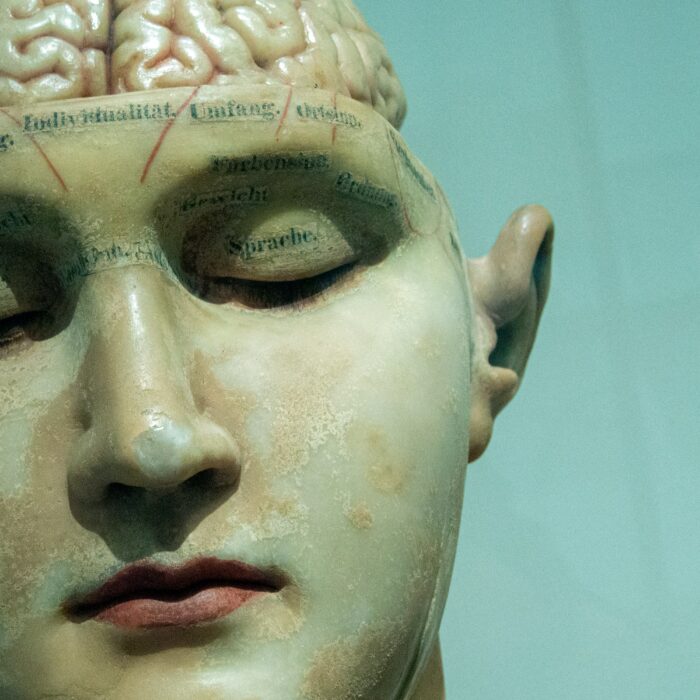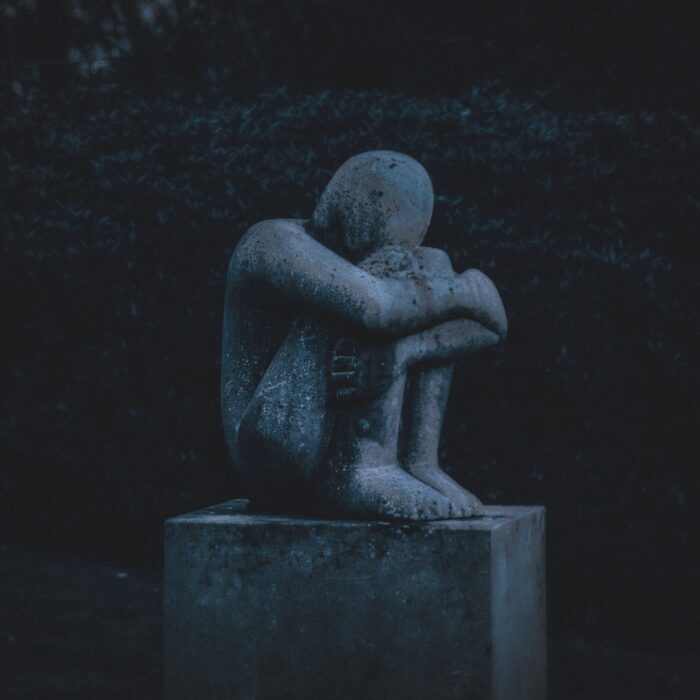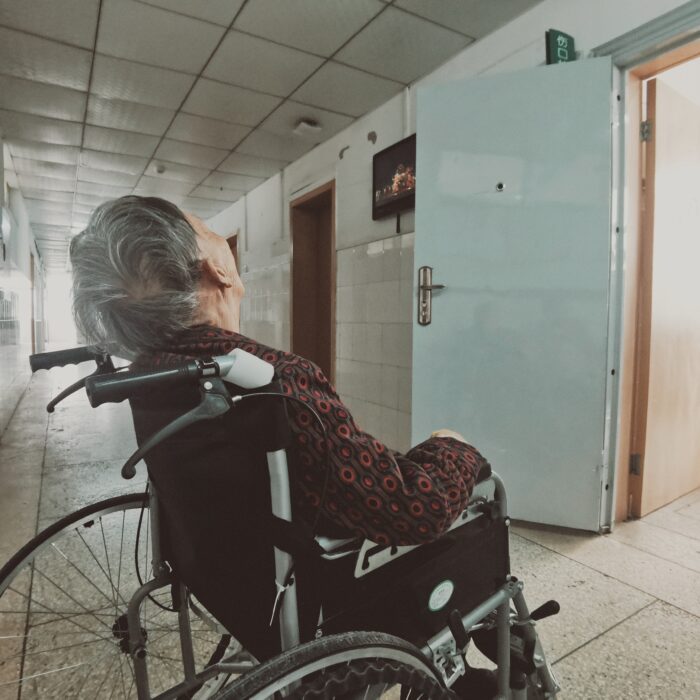You have no items in your cart. Want to get some nice things?
Go shopping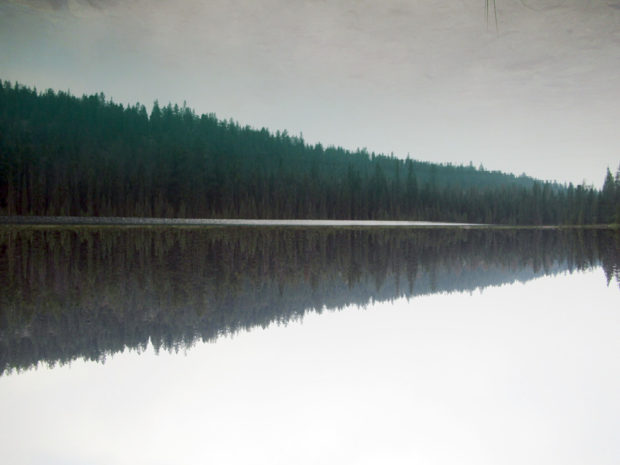
They drove out of Calgary toward Jasper, the father and the son, and on this autumnal morning the sun shone bright through breaks in the cloud but gave no warmth and they passed road signs indicating forked paths and measured distances, billboards advertising smiles and solutions, flattened roadkill and trucks with smoking drivers parked at rest stops and helpless litter clinging to wire fences and all of this was seen but not considered, like a muted television playing at dinner. The son sobbed throughout the journey while the father watched the road, knowing it was a long road, an unforgiving road with some way ahead, his eyes forward and back rigid and arms arched over the wheel. When the boy got too loud he turned the radio up. His own eyes felt raw and ached but he could not grieve in front of the boy, not now. Instead he remained distant, drunk on his stoicism, watching the rolling highway ahead while his mind replayed cerebral recordings he had of her, recordings stored in his memory that he had exhausted since she passed and somehow they all played as one. The first meeting, the first date, the first kiss, the childish courting, the two weeks turned two months in Mexico, the wedding, the in-laws, the pregnancy and the birth, the passionate love and the furious arguments and every high and low in between. Stranded in a vast ocean of memories he had no control over. They kept him company as they hurtled down the highway and for now it was a comfort, not forever he knew but for a little while longer.
The boy would never know these memories. Watching his father’s face he saw the deep creases above his forehead, his narrowed eyes and his stubbled jaw, constantly chewing on something like a grimace or a smile. Here in the passenger’s seat he was closer to his father than he’d been in two days and still he remained out of reach, vague and detached. The boy looked away, resenting the tears starting to pool in his eyes. His entire, albeit short, existence had been wrapped in soft conditioned blankets, the fears and worries he faced always quickly soothed by his mother but she was gone and his world had torn apart and in this isolation, he knew no way to process such an irrevocable change alone. He looked to his father again but every glance was wasted and once more, the boy started to cry.
This time the radio would not go any louder. Somewhere far away the boy was sobbing. The vivid and colourful scenes darkened and washed away, interrupted by something unavoidable and real. He pressed the dial and the music stopped and the boy quietened in the sudden silence. Keeping his eyes on the road the father spoke to his son. “I know it’s difficult but you need to stop crying.”
The boy sniffed, exhaled. “I can’t.”
“You can.”
“I can’t help it.”
“Please. I can’t concentrate on driving when you make all that noise.”
“Can’t we go home?”
“You think we will feel happier at home? Surrounded by everything that reminds us of her?”
The boy began to weep again.
“I know this is tough. I want to cry too but it doesn’t make you feel any better. We need to be strong for each other. We can help each other through this. I’m not crying, am I?”
“It’s easier for you.”
The father laughed. “You have no idea. You think it’s easy for me?”
“Because you’re older.”
“It’s not easy for me. I want to stop. I want to drop everything and hide myself away and cry just as much as you do, believe me. But it won’t help.”
The boy began to whimper and his eyes filled with tears again. “But she’s gone.”
“I know. That’s why we’re going for a walk. A long walk to keep our minds busy. There’s no point moping around the house waiting for the funeral.” The father sighed. “I’m being tough on you. Maybe you hate me for it. But think about your mother. Do you think it would make her happy to see you in this state?”
He reached for the radio dial and music engulfed them once more. The conversation had ended and the father was distant once more, as if an opaque partition had been raised between the two of them. The boy looked miserably down at a comic book crumpled in his lap. He flicked through the pages but the colours and illustrations were blurred, swimming beyond the watery lens of his vision. He wiped his eyes on his sleeve and tried to start from the beginning, but he knew the ending now and didn’t have the patience to follow the plot again. It was a science fiction magazine, not his usual choice and aimed at teenagers (the boy himself being a little over ten) but there were few options to choose from at the gas station several hours ago. The boy read, again, the opening caption: There are an infinite number of universes, some a little different than this one, barely perceptible to the naked eye, others unimaginably strange and horrifyingly bizarre. And what if I told you, I had the power to travel between them in the blink of an eye? What would you search for? And would you leave your old universe behind if you found it? There were words like wormholes and paradoxes that he didn’t understand but he followed the general concept. Different dimensions, alternate worlds. He considered another reality, or rather realities, one where he was taller, another where he owned a dog, one where he lived on the moon, one where everybody lived underwater, one where his mother was still alive.
*
At the crossing into the park a woman stared out at them from a toll booth. To her they resembled a pair of pilgrims who had given up hope of finding the promised land. “Have a good day gentlemen,” she said without a smile.
Just after two o’clock they arrived at the valley of the five lakes. “Here we are,” the father announced. They sat in the parked car for some time.
“I don’t want to get out,” the boy said eventually.
“It’ll be okay. We’ve been here before, with your mother.” The father paused and smiled, recalling the day. “You could barely walk but you didn’t want us to carry you. You wanted to make it on your own. You were so determined. We were so proud.”
The boy looked at his father with tears in his eyes. “I don’t want to get out.”
“It’s a beautiful hike. This will be good for us. I promise, you’ll feel better.”
They left the car in the empty lot and took the winding gravel path through thick woodland and fallen trees, across a thin bridge over a shallow river to the trailhead, a large wooden sign in an open field mapping the valley that rolled all around them. The father studied the map while the boy kicked the dirt at his feet. There were three potential hikes to choose from: the first, a short forty minute walk around the fifth lake; the second, a loop that cut between the third and fourth lakes and then incorporated the walk around the fifth, which took about an hour forty-five; and the third option, which the father insisted they take, a three hour hike that would take them to viewpoints of each of the five lakes. “If we set a good pace we’ll be back before it gets dark”, he told the boy, who opened his mouth to object but, knowing it to be hopeless, kept quiet and followed his father up a steep path bearing west towards the first lake, dragging his feet as he went.
Time passed and the father led the way, the boy always several metres behind. Neither of them spoke. The father knew the trail well, had been here with her for long weekends and vacations years ago, before the boy even existed, he could recite past footsteps and with those footsteps came more memories that entwined with his reality. She became real, not real of course, but visible, a sad projection he saw hiding behind the trees or dipping her feet in the waters of the first lake or eating a picnic on a grassy bank, her face blurred but a distinct aura illuminated her figure, something akin to a wraith that he followed blindly, hopelessly, basking in her light. She was too quick and kept vanishing and sometimes he broke into a run, his heart swelling, desperate to get close enough to see her face.
The boy watched his father as he climbed the next hilltop. He took the same steps as his father, placing his feet in each footstep formed in the detritus as he racked his brain to try and recall anything about this place, this place they had all been before, together as a family, but he couldn’t. Why can’t I remember? he asked himself, when did I forget? Instead each hilltop vista gave him a new memory, fresh images that threatened to paper over the faint or latent ones of his mother, and at this realisation he shivered in a cold sweat, terrified that the hospital would become the only setting he could imagine her in. Withered and weak in bed, drowning under white sheets and tangled tubes and when he ran down the corridors with the flicking electrical light, masked surgeons chased him with bloodied aprons, screaming after him that everything was going to be alright.
*
The change occurred on the second lake. The boy slowed and deviated from his father’s path and approached the water, descending past douglas firs and white spruces, touching the bark and its contours as he went. Through the trees he looked out over the lake, so still and clear he could see leisurely fish steering over chalk rocks that fell away into the turquoise depths beyond, and the flat surface provided a perfect mirror image of the grass banks and the tall trees and the vast sky above, beginning to grey but still decidedly light, the entire scene replicated on the surface of the second lake like a painting he’d seen in a city gallery, another world entirely. The boy picked up a small branch at the lakeside and drew his arm back to toss it as far as he could but hesitated and stopped himself, judging the serenity of the lake too precious a thing to abandon, instead placing the branch gently on the surface and launching it and it span as it drifted away from him and the fish, fat and grey and curious, circled underneath.
The father came down the bank and joined his son. He could sense the wonder in the boy and he crouched beside him and pointed out the exhibits around the lake, explaining the herons and the squirrels and the trout and the collection of moss on certain perspectives of the great barks, wrinkled and hard, and the reflection of the landscape and the sky and themselves, a perfect replica of their reality with an identical father and son. They estimated the distance between themselves and the bank opposite and the volume of water held within the lake and the height of the hawks hovering in the breeze above them. This they discussed and marvelled and laughed at together. Subdued thunder croaked to the east and a hesitant storm approached, almost reluctant to disturb these whirring minds on the lake as the clouds rolled in, slow and sombre, a blanket of grey enveloping the valley. They saw the rain before they heard it and they heard it before they felt it and when it reached them it fell in hard sheets, shaped by the wind and dancing over the second lake like swarming swallows. The boy huddled close to his father and they zipped up their coats as the surface, with its mirrored trees and darkening sky were suddenly gone, distorted by the rain into a thousand rippled images and the boy tried to look at each one, warped and transformed into different worlds but it was too late and they all dissolved into one chaotic mess.
*
They finished the trail in the dark and climbed into the car and headed south back down the same highway. The boy fought the urge to sleep, sat content in the passenger seat reminiscing an enjoyable afternoon. All of the five lakes had been beautiful but he liked the second lake the best. He tried to steal glances at his father as he drove but the slightest turn of his head caught his father’s attention and he didn’t want to distract him. Instead he watched the trunks of the great firs rushing past, illuminated by the beams of the headlights. The night hid the higher branches and the treetops but he knew they were there – he’d seen them on the drive in. He looked over his shoulder at his mother asleep on the backseat, her body breathing under the blanket, her face just hidden in the shadows, lit occasionally by passing street lamps but never enough to see her delicate features, the beauty, those loving and caring eyes. Like in a reflection, the finer details were lost. His father was smiling now too; looking into the rearview mirror, he hummed to the melody from the radio and tapped his fingers lightly on the wheel. He glanced at the boy and their eyes met and they shared a look, as if they knew what the other was thinking but neither could speak for fear of waking her up. She must be allowed to rest. There was a long drive ahead.
*
The car hits a pothole and the father and the son jerk forward in their seats. Such a small and insignificant failing barely perceptible on the surface of the road, like an impact crater in the middle of the desert from a harmless meteor strike centuries before. A few inches either side and it would have been avoided completely but it was on their path and it rocked the car as they drove over it. The boy sits up in his seat and grins at his father, only to see the father hunched over the wheel with tears in his eyes. They glisten, illuminated by the traffic as they run down his cheeks through his beard and into the shadows below the wheel. Looking at his own limp feet the boy finds them surrounded by beer cans and piles of comics discarded in the murk. He turns to the backseat but she is gone, no sleeping figure nor the blanket that had covered her, so he faces forward and allows himself to sink deeper into the passenger seat. The radio is too loud but it is not music, it is a chat show where far-off voices laugh about something inane, laughter that is hollow and echoes around them. He feels nauseous so he closes his eyes and thinks of the second lake, its waters so still and clear that he can see the fat fish and the tall trees and the brightening sky, a new world existing on the surface. He sees their reflections, his father and his mother, and he sees himself standing between them. For a moment he feels happier, the three of them together again with their shivering outlines and their blurred faces, gazing at their feet on the water’s edge.
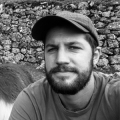
About Nicholas J. Parr
Stranded on an island in the English Channel, Nicholas J. Parr is a writer based in Guernsey. His stories have been published in 404 INK, Litro and Thoughtful Dog.
- Web |
- More Posts(2)


